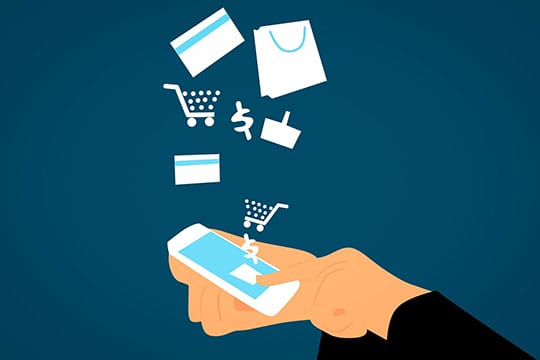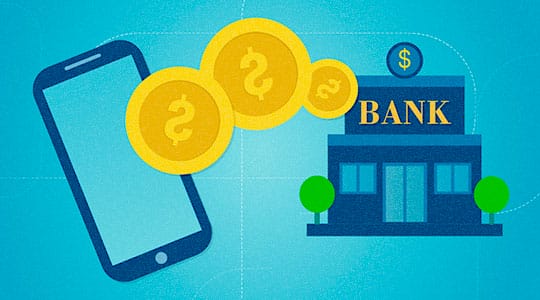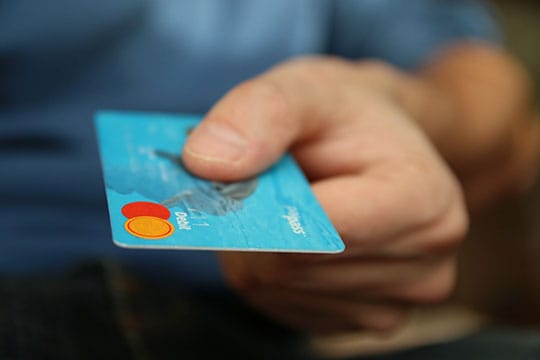Your bank probably spends a lot of time and money on its mobile banking system. It makes things more convenient for the customer and reduces the in-person work that the bank has to do. However, you might be worried about whether or not mobile banking is safe. What if the worst happens and someone gains access to your accounts? It is scary to think that somebody might just be one simple hack away from getting to your bank details and even being able to spend your money.
In this guide, we’re looking into the best ways to ensure that you are safe when using online banking on your mobile. A few simple tips can go a long way to keeping your money and your data safe.
Safety Tips for Online Banking

Let’s explore the top tips for safely using online banking when you are on the go and ensuring that you don’t have to worry about your data being compromised or even losing your money because of a hacker or succumbing to a scam.
Recommended for you: How is Technology Helping Banking Institutions?
Don’t Lose Your Phone

This sounds like an obvious tip! However, it’s amazing how frequently people still lose their phones. In the modern age, there are certain things that can protect you such as face ID, or fingerprint verification, but some hackers have a way around this. If your phone doesn’t have the right security features then someone might be able to get into your online banking app with ease and do whatever they want with your money.
Though you absolutely must be cautious with your phone and not lose it, you should also make sure you have features in place to lock or protect your phone if it is stolen. Losing a phone is annoying, but it is even more frustrating if whoever has stolen it can access everything you have stored on it, including passwords.
Use Only Mobile Banking App, Not the Browser

There is a chance that your browser might have some malware installed. If malicious software or spyware has been installed on your browser then a scammer or hacker might be able to watch what you are doing and even track keystrokes and passwords.
Unfortunately, neither system is perfect. If you are using a mobile banking app there are potential security weaknesses, too, but they are usually better than a browser and with less risk attached. A lot of banks are very hot on updating their mobile apps if any breaches are found. Did you know some even employ hacking experts to try and expose weaknesses that they can then repair?
The risks aren’t huge, but you should always keep the banking app updated to make sure you’re not susceptible to some of the weaknesses that appear.

Learn to Recognize Email and SMS Scams

Being able to avoid phone scams is absolutely crucial if you are going to stay safe with your mobile banking. Scammers have been sending spam texts and emails for as long as these mediums have been available to them, but they are getting more sophisticated.
Telltale signs of scam emails are those that try to get you to enter details like passwords or personal account information. Your bank should not request this information via email.
Always check the email account and phone number that any messages come from that claim to be about “banking”. It’s very possible that someone has had an issue with this number before and has warned about it online. There are even reverse phone lookup tools to see if the number or email is legitimate.
Avoid Using Mobile Banking on Public Wi-Fi

There is always an element of risk that comes with using public Wi-Fi, especially if it is not well secured. Cybercriminals may be able to hack into these networks and track what you are doing. They can steal your data and even your passwords that may allow them to access your mobile banking, and your money.
In some cases, there are even examples of specific Wi-Fi networks set up as a way to scam people. These unsecured networks are purely designed to prey on people who log in. You never truly know what is going on behind the scenes when you join one of these networks. It’s too much of a risk.
Public Wi-Fi is not usually needed, either. 4G and even 5G networks are growing and as long as you have a decent phone network and contract you can take advantage of your connection to data. This is far safer than using a public network. It’s often fine to use a public Wi-Fi network, but if you then use your mobile banking you are running a risk.
You may like: 10 Most Profitable Mobile App Business Niche for 2019-2020.
Make Sure to Use Two-factor or Multi-factor Authentication

Two-factor authentication can be frustrating. It can ask you to enter multiple passwords or verify with a face ID or even a fingerprint. Alternatively, the app might send a code to your email address that you then need to enter to access the app. It’s not always convenient. However, it is worth it.
This sort of authentication system is designed to give an extra level of protection so that if a scammer gets their hands on one of your passwords or accesses your mobile banking app, they still might not be able to get in if they can’t authenticate who they are.

Set a Strong Password

You can find this tip on the majority of websites and articles that are discussing cybersecurity. It’s not new information. However, it needs to be reiterated all the time because of the fact that so many people do not create strong and effective passwords to keep people out.
Strong passwords should use special characters, and not be easy to guess. Make sure you change your passwords regularly as a part of your cybersecurity operation and don’t use the same password for lots of different apps and websites.
Set up Alerts via Email, Text, or the Bank’s App

Alerts can tell you when a new sign-in has taken place on your account, or if a new recipient is set up on your banking. You might have to verify this, or, if not, you might be prompted to contact the bank to try and tackle any issues. If anyone does access your account, they might be able to do damage if you are able to contact the bank quickly enough. This is vital, if you don’t act quickly then the chances of the scammer getting away with it and not being easy to trace increase greatly.
FAQ (Frequently Asked Questions)

How safe is mobile banking? We explore more of your frequently asked questions below.
Is Mobile Banking Safe on Android?
In the majority of cases, if you take the necessary precautions, mobile banking is safe on Android. The Android app store can occasionally become infiltrated with some spam or imitation apps but they are usually quickly stamped out so they don’t pose a threat. Keep your operating system and apps updated to ensure that you are safe.
Is Mobile Banking Safe on iPhone?
iPhones are even less susceptible to viruses and the app store is quite closely guarded. It is hard to get an app published on Apple’s app store, which means that scammers can’t hack your account that way. There is always a very slight risk of the apps having security breaches, but this is unavoidable.
What are the security risks of mobile banking?
Mobile banking doesn’t specifically have a huge security risk, but it is potentially an opportunity for hackers to steal your data or to even steal money directly. For example, someone with spyware installed on their device might see that their details get stolen. If someone stole your details, they could not only use the money, but they might also be able to use your details to apply for lending or sell your information on the black market.
How do banks and financial institutions protect the consumer?
There are restrictions on the way financial institutions and banks can conduct themselves, but if your money is stolen, depending on the circumstances, the bank might claim that you are eligible. Luckily, most banks can cancel transactions and trace hackers if you are quick about contacting your bank and letting them know that there has been a breach or an issue.
Fortunately, banks don’t want their customers to lose money either, and this can cause them huge issues, so most of the banks out there are very good at keeping their applications and mobile banking safe and secure and protecting the customers. Having a plan in place to try and patch any security breaches on apps is one of the key protection customers can rely on.
You may also like: 25+ Best Payment Gateways for Your eCommerce Website.
The Bottom Line

So, what is the bottom line on mobile banking and its safety? Are there really any risks to installing a mobile banking app on your phone?
Virtually everyone uses mobile banking apps, and the fact of the matter is that the industry is huge, so banks are moving to offer more protection for their customers’ money.
There is some risk attached to having an online banking account and to using mobile banking. You don’t need to worry too much about it, just make sure you conduct yourself in a safe way and update your mobile banking app as soon as required, you should be safe. Avoid scams, and put some simple security steps in place, and it is likely that mobile banking will be completely safe for you.
This article is written by Emily Andrews. Emily is the marketing communications specialist at RecordsFinder, an online public records search company. Communications specialist by day and community volunteer at night, she believes in compassion and defending the defenseless.
 This article is written by Emily Andrews. Emily is the marketing communications specialist at RecordsFinder, an online public records search company. Communications specialist by day and community volunteer at night, she believes in compassion and defending the defenseless.
This article is written by Emily Andrews. Emily is the marketing communications specialist at RecordsFinder, an online public records search company. Communications specialist by day and community volunteer at night, she believes in compassion and defending the defenseless.




